-
Selfies could replace security passwords – but only with an upgrade
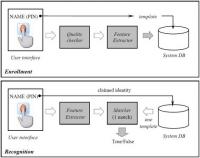
The next time you do some online shopping or call your bank, you may find you no longer have to scrabble around to remember your security password. Banks are increasingly turning to voice recognition technology as their preferred way of ensuring customers are who they say they are when they use telephone banking services. But does this kind of technology really mean that you’ll soon be able to just forget your passwords? The short answer right now is “no.”
-
-
Forensics close in on footwear analysis
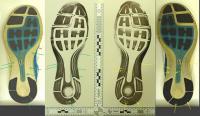
First it was your fingerprint that gave the game away and then DNA analysis transformed forensic science. But “watch your step” because experts have developed a new technique which could lead to a step change in forensic footwear imaging. The experts have been able to extract additional information and create a digital picture of the personal footprint we leave behind when we stand or walk on a hard surface.
-
-
Vulnerability found in in two-factor authentication
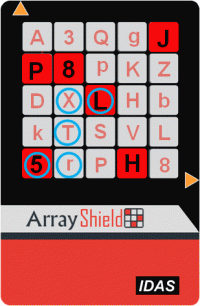
Two-factor authentication is a computer security measure used by major online service providers to protect the identify of users in the event of a password loss. Security experts have long endorsed two-factor authentication as an effective safeguard against password attacks. But what if two-factor authentication could be cracked not by computer engineering but by social engineering?
-
-
Faster airport lines with facial recognition
More and more people are travelling by plane, so automating airport security checks makes sense. The use of biometric features is a way to identify people at airports. New technology detects and tracks you from the second you arrive at the airport until you’re out of the arrivals hall at your destination.
-
-
No immediate impact on Pennsylvania from DHS update to REAL ID deadlines
The Pennsylvania Department of Transportation said there would be no immediate impact to Pennsylvania citizens is expected based on the recent announcement by DHS regarding its schedule for implementing the federal REAL ID Act of 2005. The act deals with identification requirements for boarding federally regulated commercial aircraft.
-
-
Travel association to DHS: Tell Congress about visa overstays before tourism is restricted
The U.S. Travel Association is urging DHS to address people who stay overstay the length of their approved visas before placing new restrictions on visa waiver programs that are designed to boost U.S. tourism. “We should not even begin to discuss further improvements to visa security without much-needed data from the Department of Homeland Security on visa overstays,” the association says.
-
-
DHS extends deadline for Real ID-compliant driver’s licenses
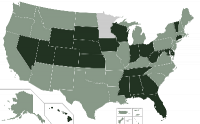
DHS on Friday announced that air travelers who are residents of several states which are yet to meet the Real ID federal security standards would still be able to use their driver’s licenses at U.S. airports until 22 January 2018. From that point on, if the traveler’s state does not yet offer a Real ID-compliant driver’s license, the passenger would be required to present an alternative identification document such as a passport. Five state and American Samoa were not given the extension, and must become compliant by January 2018.
-
-
Senior Russian security officials exhibit “gunslinger gait”: Experts

Experts have discovered a new gait pattern among several top Russian officials, including President Vladimir Putin and Prime Minister Dmitry Medvedev. The researchers term this “gunslinger’s gait” because it may be triggered by KGB or other forms of weaponry training. The gait features a consistently reduced right-sided arm swing, highlighted in video material of the individuals studied.
-
-
New biometric measures to identify, track refugees
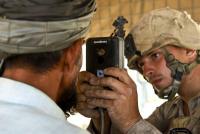
Refugees applying to come to the United States go through several different security measures aiming to make sure that they who they say they are, and that they are involved with terror organizations or criminal gangs. The security screening includes detailed interviews, three levels of background checks, three fingerprint screenings, contagious disease screening, and cultural orientation. The United States has plans in the works for additional biometric measures, including iris scanning and rapid-turnaround DNA testing.
-
-
CBP begins biometric entry/exit testing at Otay Mesa port of entry

U.S. Customs and Border Protection (CBP) will begin testing new biometric technology at the Otay Mesa pedestrian crossing this week to enhance identification of certain non-U.S. citizens entering and exiting the United States. CBP says its Entry/Exit strategy includes three core pillars: identify and close the biographic gaps and enhance the entry-exit system; perform targeted biometric operations; and transform the entry/exit process through the use of emerging biometric technologies.
-
-
Paris attacks expose weaknesses in Europe’s security structure
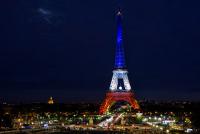
The 13 November attacks in Paris offered a painful demonstration of Europe’s security loopholes which the terrorists exploited to their advantage. The attacks should serve as a wake-up call to Europeans that the continental security structure, built in another era, is no longer sufficient and needs to be adapted to new circumstances. Whether or not such adaptations can be made, and made in time before the terrorists decide to launch another attack, is an open question.
-
-
Large-scale face-search technology helps in fighting crime, terrorism
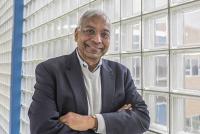
The rapid growth in surveillance cameras is resulting in millions of face images and videos captured every day. The ability quickly and accurately to search all these images to assist in identifying criminal and terrorism suspects is an important and complex task that can contribute to making communities safer. To help in this effort, MSU has licensed its large-scale, automatic face-search system to NEC Corp.
-
-
Man uses stolen boarding pass to get through Utah airport security
A man who had stolen a boarding pass which was left by mistake on a Southwest Airline counter, managed to get through airport security in Salt Lake City, but was stopped at a gate for a flight to California. The attendants at the boarding gate became suspicious since the woman for whom the boarding pass was printed had been given a replacement pas and had already checked in.
-
-
New technique can tell whether a fingerprint belongs to a male or female
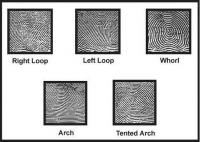
Culprits beware: researchers are taking crime scene fingerprint identification to a new level. They have discovered a straightforward concept for identifying whether a culprit is male or female. It is based on the content in fingerprints — specifically amino acids. Amino acid levels in the sweat of females are about twice as high as in males. There is also a slightly different distribution, due mostly to hormonal differences. The same is true for amino acids left behind in fingerprints.
-
-
Trump: Muslim Americans may be required to carry special ID noting their religion
Donald Trump said he would not rule out entering all Muslim Americans in a database or giving them “a special form of identification that noted their religion.” Trump told the interviewer that he would consider warrantless searches of Muslims and increased surveillance of mosques. “We’re going to have to do things that were frankly unthinkable a year ago,” Trump said.
-
- All
- Regional
- Water
- Biometrics
- Borders/Immig
- Business
- Cybersecurity
- Detection
- Disasters
- Government
- Infrastructure
- International
- Public health
- Public Safety
- Communication interoperabillity
- Emergency services
- Emergency medical services
- Fire
- First response
- IEDs
- Law Enforcement
- Law Enforcement Technology
- Military technology
- Nonlethal weapons
- Nuclear weapons
- Personal protection equipment
- Police
- Notification /alert systems
- Situational awareness
- Weapons systems
- Sci-Tech
- Sector Reports
- Surveillance
- Transportation
Advertising & Marketing: advertise@newswirepubs.com
Editorial: editor@newswirepubs.com
General: info@newswirepubs.com
2010-2011 © News Wire Publications, LLC News Wire Publications, LLC
220 Old Country Road | Suite 200 | Mineola | New York | 11501
Permissions and Policies
Editorial: editor@newswirepubs.com
General: info@newswirepubs.com
2010-2011 © News Wire Publications, LLC News Wire Publications, LLC
220 Old Country Road | Suite 200 | Mineola | New York | 11501
Permissions and Policies
